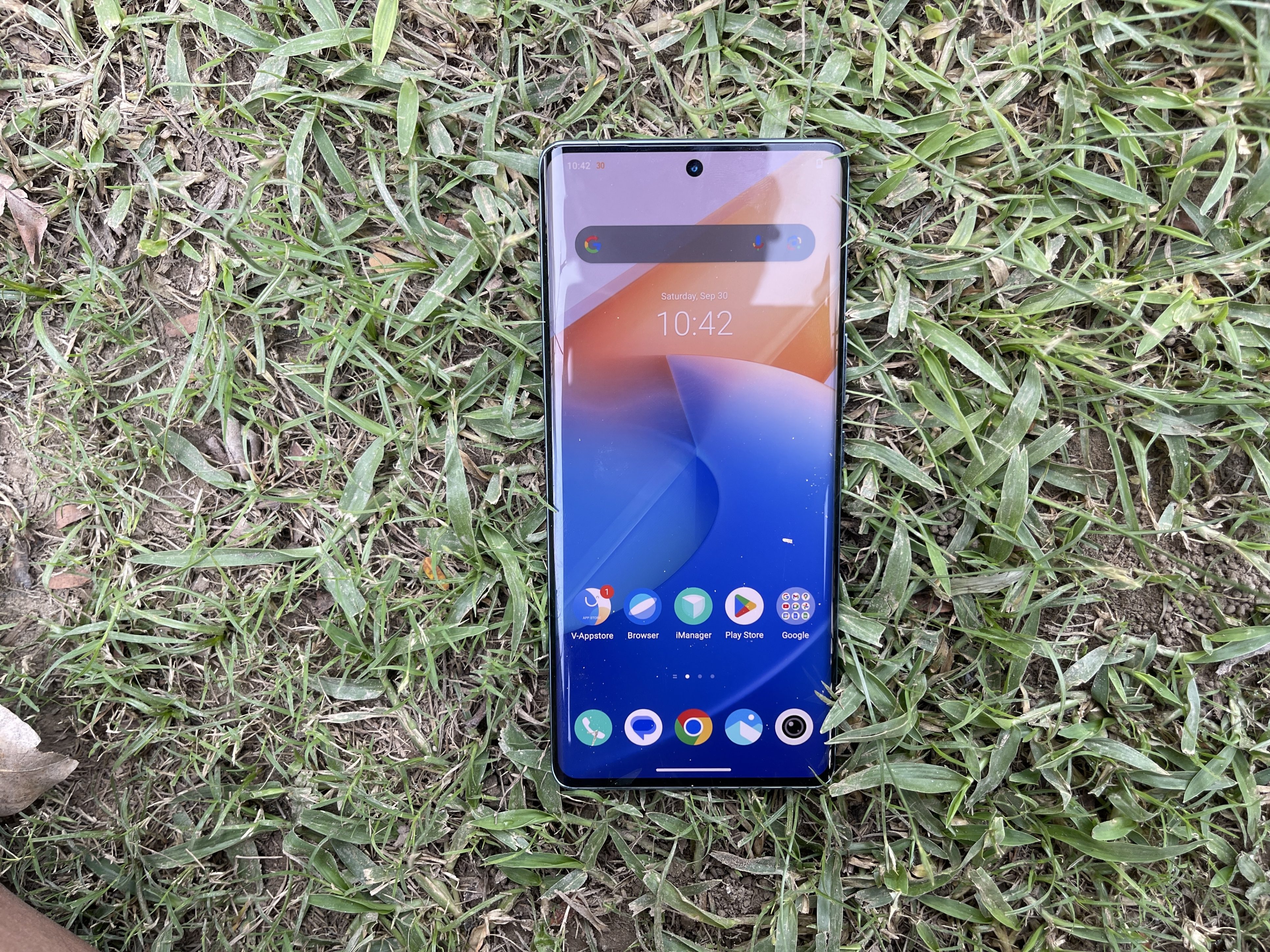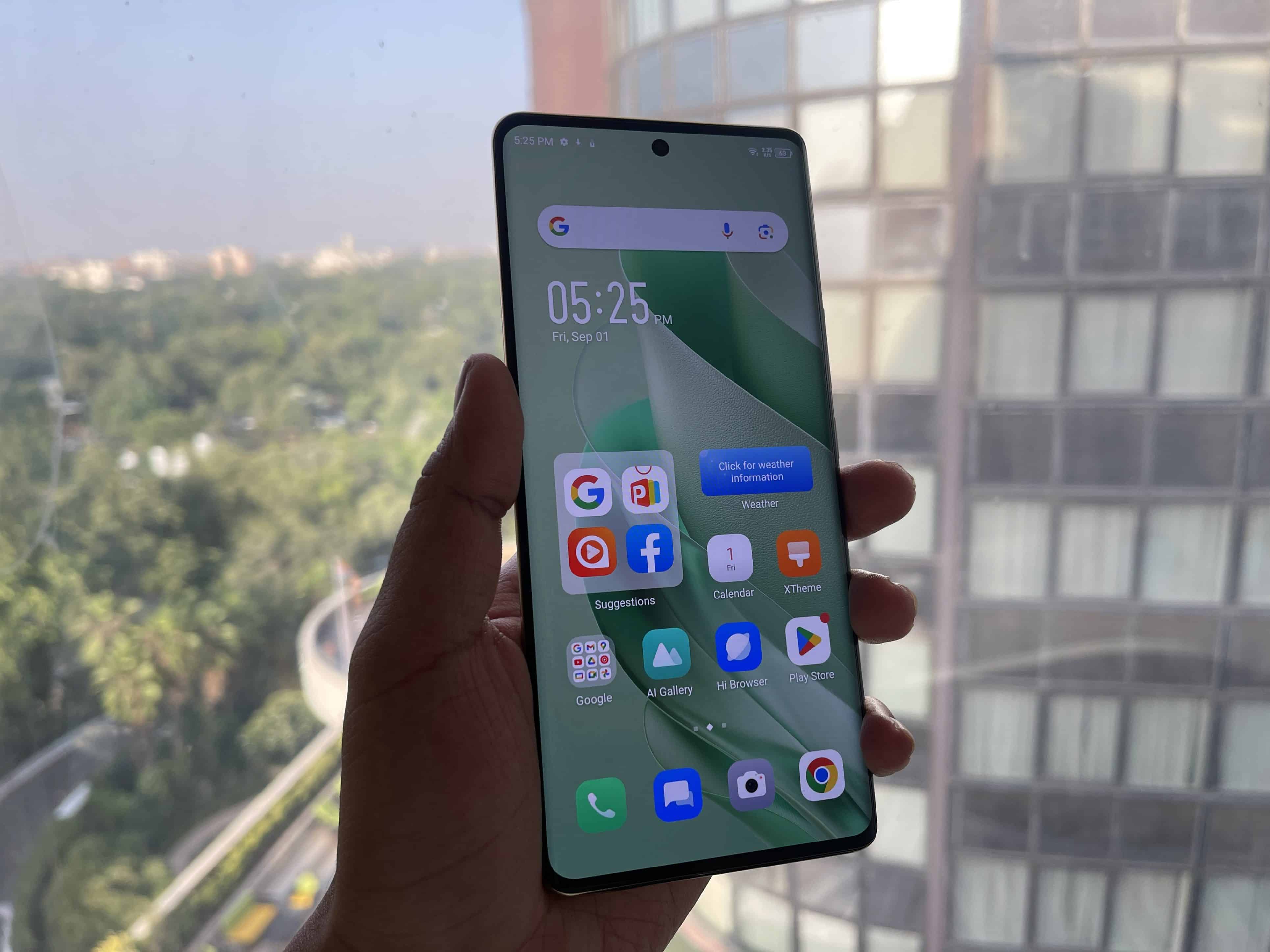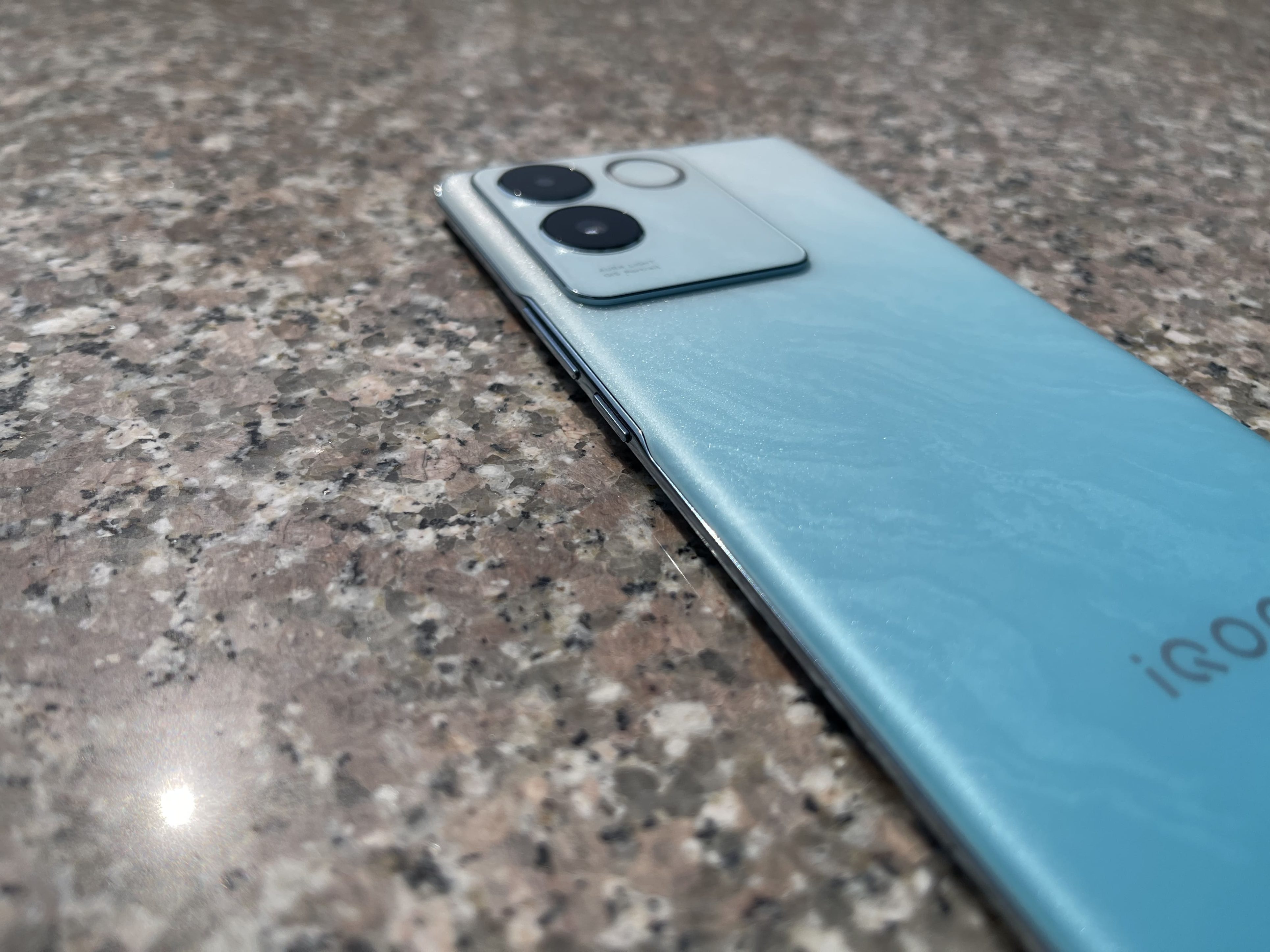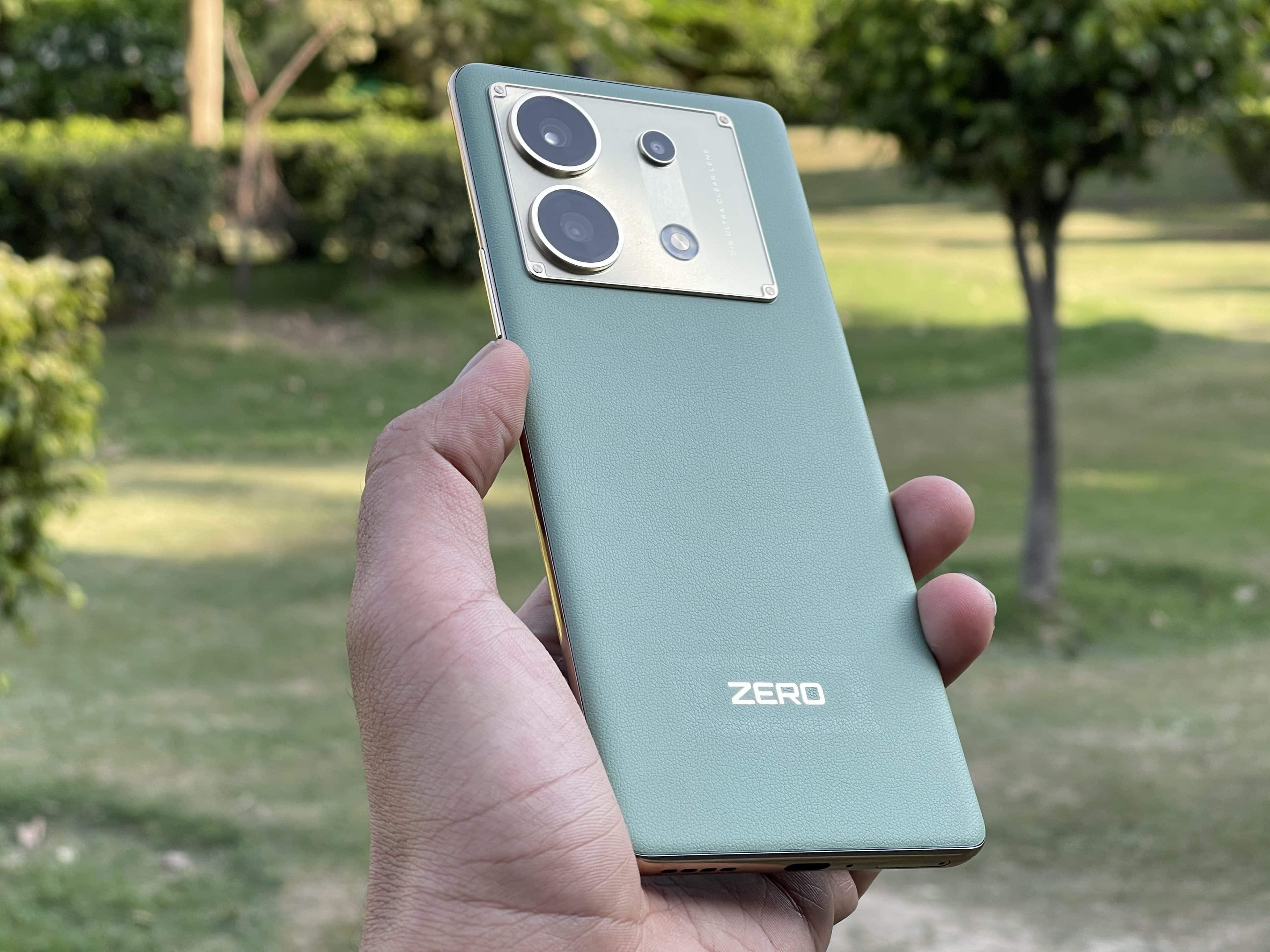Highlights
- MediaTek Dimensity 7200 SoC in iQOO Z7 Pro outperforms Infinix Zero 30’s Dimensity 8020 in Antutu benchmarks.
- Infinix beats the iQOO Z7 Pro in both single-core and multi-core Geekbench scores
- Infinix Zero 30 heats up during long gaming sessions, whereas iQOO Z7 Pro maintains stability.
- Both phones offer 256GB of UFS 3.1 storage and expandable RAM options, catering to performance enthusiasts.
The battle for supremacy in the mid-range smartphone segment is heating up with contenders like the iQOO Z7 Pro and Infinix Zero 30.
Both devices are marketed towards performance enthusiasts and gamers.
With price tags of Rs 23,999 for the iQOO Z7 Pro and Rs 25,279 for the Infinix Zero 30, they offer a lot of bang for your buck.
This article provides an in-depth comparison, examining their performance metrics, gaming capabilities, and how they stack up in synthetic benchmarks.
Performance and Benchmarking Metrics

iQOO Z7 Pro
- MediaTek Dimensity 7200 SoC, 4nm build, max clock speed 2.8GHz
- 8GB LPDDR4X RAM (Expandable with Dynamic RAM)
- 256GB UFS 3.1 Storage
- CPU Throttle Score: 84%
- Geekbench 6: Single-core 1,176, Multi-core 2,673
- Antutu Score: 713,216
The iQOO Z7 Pro is powered by a MediaTek Dimensity 7200 SoC, a 4nm chipset that achieves a max clock speed of 2.8GHz thanks to its Cortex A715 CPU.
When put through the Antutu benchmark, the device earned an impressive score of 713,216, demonstrating its ability to handle a wide range of tasks efficiently.
Additionally, its Geekbench 6 scores were equally impressive: a single-core score of 1,176 and a multi-core score of 2,673.
These scores indicate a well-rounded CPU performance, capable of both bursty single-threaded tasks and more demanding multi-threaded operations.
The CPU Throttle score was an impressive 84%, which shows that the device can maintain consistent performance over long periods.
Infinix Zero 30

- MediaTek Dimensity 8020 SoC, 4nm build, max clock speed 2.6GHz
- 8GB LPDDR4X RAM (Our variant has 12GB, expandable)
- 256GB UFS 3.1 Storage
- CPU Throttle Score: 68%
- Geekbench 6: Single-core 993, Multi-core 3,355
- Antutu Score: 706,479
The Infinix Zero 30, on the other hand, comes with a MediaTek Dimensity 8020 SoC. This 4nm chip has a max clock speed of 2.6GHz, achieved through its Cortex A78 CPU.
While it slightly lags behind the Z7 Pro in Antutu scores with a 706,479, it outshines in Geekbench 6 multi-core performance with a score of 3,355.
However, its single-core score of 993 is lower, which might affect performance in tasks that don’t leverage multiple cores.
Also, the device’s CPU Throttle score lags at 68 percent, hinting at performance degradation under sustained loads.
Gaming Performance and Experience
iQOO Z7 Pro

The Z7 Pro excels in gaming with remarkable stability and battery efficiency.
Popular titles like BGMI ran at a consistent 60fps on HD graphics without any signs of stuttering or heating.
Even over a 30-minute gameplay session, the battery only drained by about 20%. Similarly, Call of Duty: Mobile performed well at 60fps at the highest graphics settings, consuming just 18% battery.
Infinix Zero 30

The Zero 30 shows promise but has some setbacks. While it runs BGMI at Extreme 60fps with HD graphics, the device tends to heat up.
A 30-minute gameplay resulted in a more substantial 31% battery drop.
Call of Duty started strong but exhibited signs of stutter after about 30 minutes, indicating that long gaming sessions might be problematic.
Concluding Thoughts
The iQOO Z7 Pro and the Infinix Zero 30 are competent in their own right, but the former edges out in overall sustained performance and gaming efficiency.
The slightly lower price point of Rs 23,999 for the iQOO Z7 Pro offers a more balanced experience against the Rs 25,279 Infinix Zero 30.
FAQs
Ques) What chipsets do the iQOO Z7 Pro and Infinix Zero 30 use?
The iQOO Z7 Pro uses a MediaTek Dimensity 7200 SoC, while the Infinix Zero 30 comes with a MediaTek Dimensity 8020 SoC. Both are 4nm chipsets but differ in max clock speeds and benchmark scores.
Ques) How do the two phones compare in terms of gaming performance?
The iQOO Z7 Pro shows more stability and efficiency during gaming, while the Infinix Zero 30 tends to heat up and shows signs of stutter during extended gameplay.
Ques) Is there a significant difference in price between the two models?
The iQOO Z7 Pro is priced at Rs 23,999, while the Infinix Zero 30 is priced at Rs 25,279. The slight difference in price may be a deciding factor for some buyers.
Ques) What are the Geekbench and Antutu scores for these devices?
The iQOO Z7 Pro scored 713,216 in Antutu and had Geekbench 6 scores of 1,176 (single-core) and 2,673 (multi-core). In contrast, the Infinix Zero 30 scored 706,479 in Antutu and had Geekbench 6 scores of 993 (single-core) and 3,355 (multi-core).
Also Read: iQOO Z7 Pro Review: Striking the Balance Between Aesthetics and Power
Also Read: Infinix Zero 30 Review: Mid-Range Mastery with A Premium Flair
